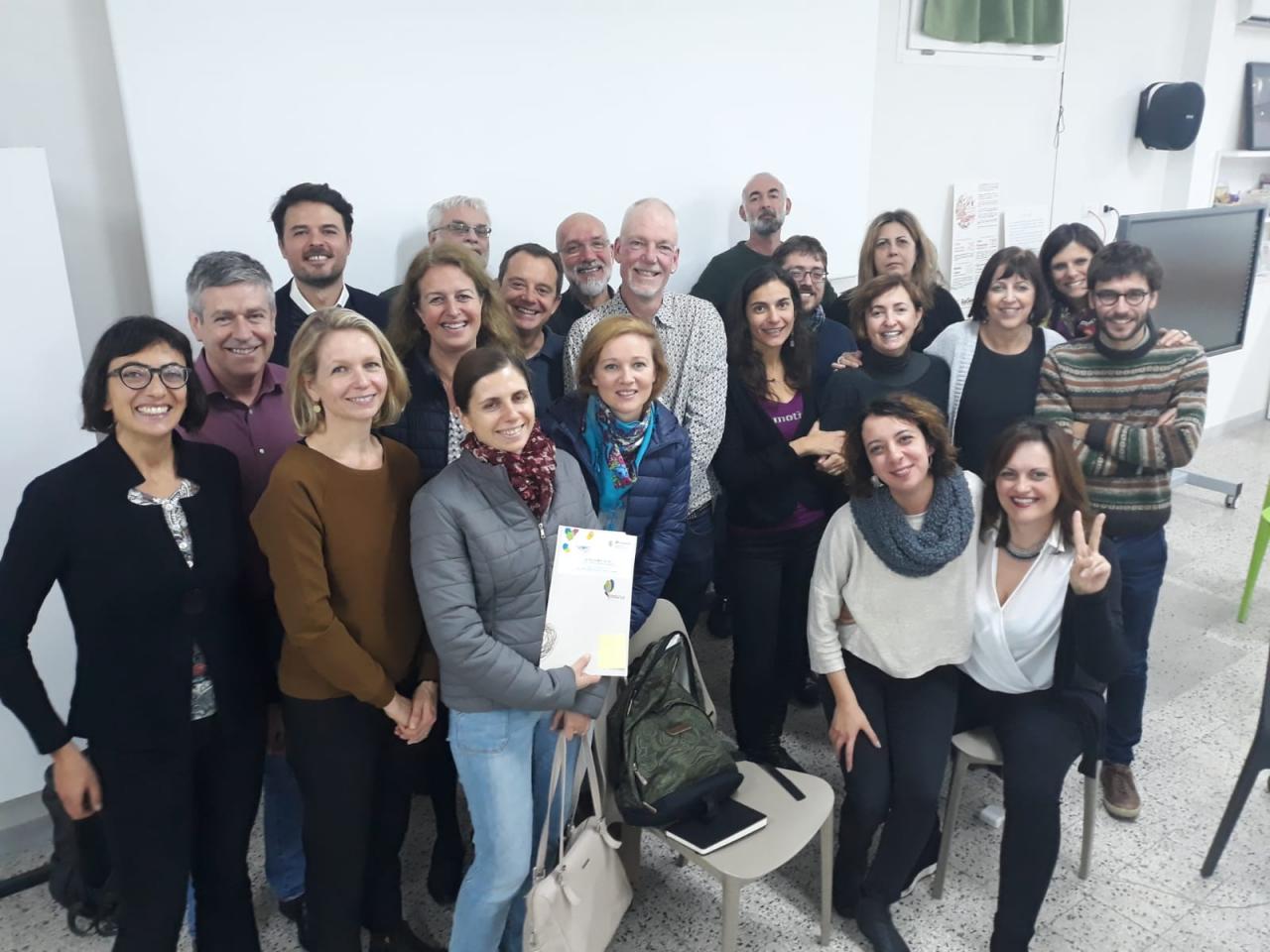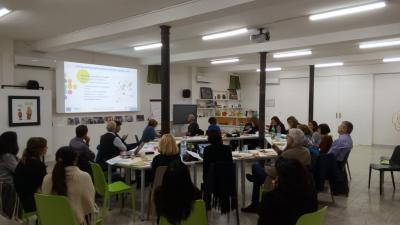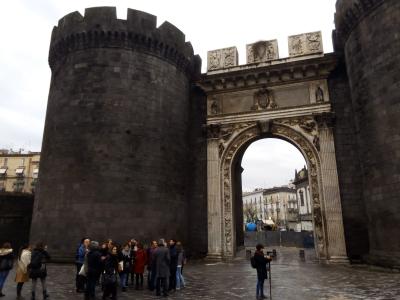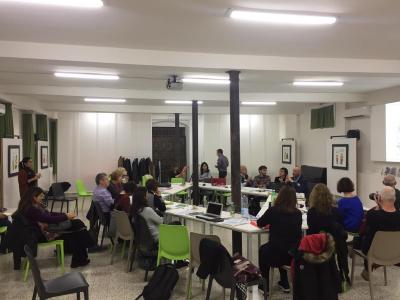
By Nicola Masella and Roberta Nicchia
The URBinclusion “ULG Thematic Seminar” took place in Naples on the 13th and 14th of December 2018, bringing together representatives from the URBinclusion Local Group and Network's partners. The main aim of this meeting was, in fact, to exchange and learn on the topic: how to make co-creation and co-responsibility real?
The meeting was a unique opportunity for the Naples’ URBACT Local Group to receive feedbacks on the strategy and activities they are implementing from an international panel of urban experts and practitioners, who are also facing similar challenges in other EU cities.
Following the introduction of Nicola Masella - Naples’ Project Coordinator- who provided an overview of the Local Action Plan (LAP) and of the “Porta Capuana” target area. Two representatives of the Naples Municipality (Claudia Rusciano and Luca D’Angelo) were involved in order to present the local context under the historical and urban point of view and to describe the wider UNESCO Projects for urban renewal of the historical center. Then, a social and relational profile of Porta Capuana area was described by Imma Di Napoli & Stefania Carnevale from the Community Psychology lab, University of Naples “Federico II.
At a second stage, the participatory strategy for the implementation of the LAP was presented by Roberta Nicchia, ULG Coordinator, who focused on the “Porta Capuana Coordination Table” set up by the Municipality for sharing, integrating and monitoring the ongoing projects in the area and their implementation. Moreover, Naples’ implementation challenges and the locally proposed solution stories were introduced to the network’s partners.
The first solution story was introduced by Fatima Ouazri, (Tangle of Experience: Dedalus – Officine Gomitoli). In just two years of life, Officine Gomitoli has become an important reference point for the teenagers of the territory and, more in general, for the inhabitants of the area and beyond. It is an intercultural center for teenagers and young people, an open and collective place aimed at supporting meeting opportunities and the coexistence between Italians and migrants, a place for sharing beauty, culture, training and growth.

Then, Graziella Portia introduced the third solution story for the association “Aste & Nodi”: Re-design your neighborhood: a participatory process for multicultural regeneration. A three-steps process aimed at enhancing multiculturalism and strengthening the sense of belonging of the new inhabitants to the Porta Capuana district. The purpose is the creation of synergies between the migrants' communities that have settled in the neighbourhood in recent years and the new activities dedicated to art and culture that arouse at the same time.
Achieved results and lessons learned:
The meeting was an in-depth immersion in the local context of Naples and, in particular, in the Porta Capuana area. Through presentations, discussions and site visits (including a Migrantour, specifically prepared by some ULG members to show the multicultural character of the area), the local context was analyzed under different perspectives: historical, urban, social, the ongoing urban regeneration projects and social activities, etc..
Furthermore, the discussion and the workshop coordinated by the Lead Experts, Lorenzo Tripodi and 
Moreover, an interesting discussion took place on how to organize and develop the proposed case studies and solution stories.
Decisions were related mainly to the Production of network outputs and the so-called “Compendium of Implementation”, that will be a mix of text-based elements, particularly articles in the form of solution stories, case studies and shorter case examples as well as other more visual elements such as videos from cities or infographics and animations.
